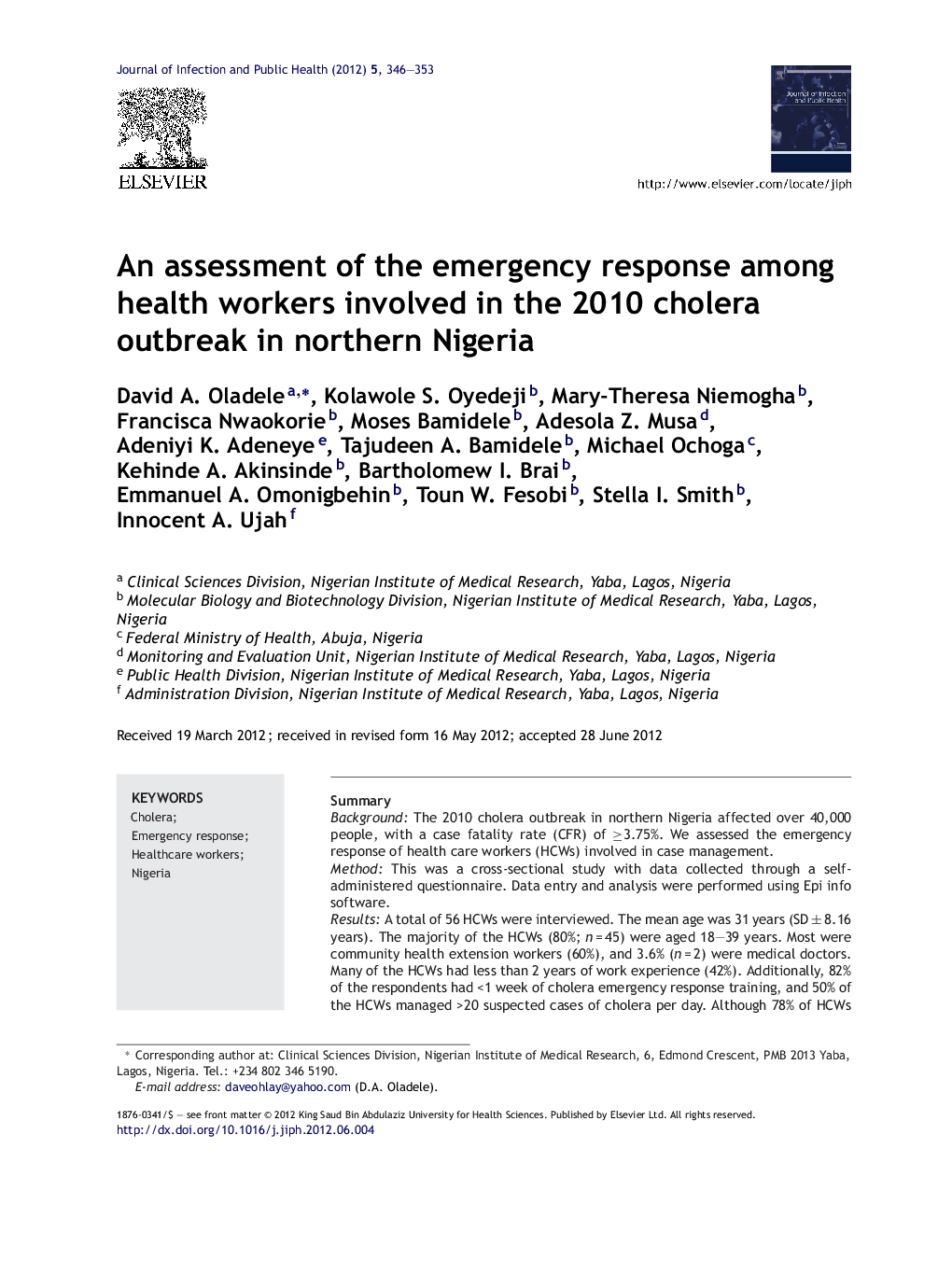| Article ID | Journal | Published Year | Pages | File Type |
|---|---|---|---|---|
| 3406220 | Journal of Infection and Public Health | 2012 | 8 Pages |
SummaryBackgroundThe 2010 cholera outbreak in northern Nigeria affected over 40,000 people, with a case fatality rate (CFR) of ≥3.75%. We assessed the emergency response of health care workers (HCWs) involved in case management.MethodThis was a cross-sectional study with data collected through a self-administered questionnaire. Data entry and analysis were performed using Epi info software.ResultsA total of 56 HCWs were interviewed. The mean age was 31 years (SD ± 8.16 years). The majority of the HCWs (80%; n = 45) were aged 18–39 years. Most were community health extension workers (60%), and 3.6% (n = 2) were medical doctors. Many of the HCWs had less than 2 years of work experience (42%). Additionally, 82% of the respondents had <1 week of cholera emergency response training, and 50% of the HCWs managed >20 suspected cases of cholera per day. Although 78% of HCWs reported the practice of universal safety precautions, 32% (n = 18) knew HCWs who developed symptoms of cholera during the epidemic, most of which was believed to be hospital acquired (78%). We also found that 77% (n = 43) of HCWs had no access to the required emergency response supplies.ConclusionInadequate training, a lack of qualified HCWs and a limited supply of emergency response kits were reported. Therefore, the government and stakeholders should address the gaps noted to adequately control and prevent future epidemics.
► We evaluated the emergency response of healthcare workers involved in cholera case management. ► There was lack access to kits and supplies and the motivation required to handle heavy workload during the epidemic. ► Inadequate training, heavy workload and absence of experienced staff were responsible for high case fatality rate. ► Poor practice of universal safety precaution among healthcare workers was linked to hospital acquired cholera infection. ► Emergency response training, access to kits and supplies and collaborative efforts are necessary for cholera control.
